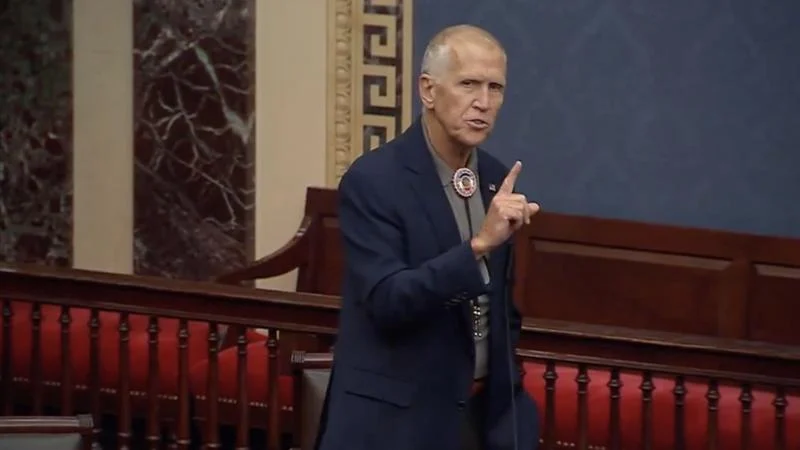Crafting a $25 billion rural hospital fund was not enough to sway North Carolina Republican Sen. Thom Tillis’ vote Tuesday during the upper chamber’s passage of the reconciliation budget bill.
Vice President J.D. Vance broke a tie at 50 to advance the One Big Beautiful Bill Act, known also as House Resolution 1, back to the House of Representatives. A different form of the legislation passed 215-214 earlier and there are consensus questions on whether an acceptance of changes will happen.
President Donald Trump has been hopeful to sign on or before Friday on the nation’s 249th birthday.
Tillis was joined in being a Republican voting against by Sens. Rand Paul of Kentucky and Susan Collins of Maine. Republican Sen. Lisa Murkowski of Alaska was a late get toward 50.
Tillis said Sunday he would not seek reelection in the 2026 midterms hours after he cast a vote against bringing the bill to floor debate. The party moderate has fought diligently against Medicaid policies his chamber brought into the bill; changes he said will cost the North Carolina state budget $32 billion and risk closure of rural hospitals and further handicap communities around them.
North Carolina lawmakers for years were against expanding Medicaid, including when Tillis was speaker of the House from 2011-14. Two years ago, lawmakers agreed to a deal that enacted a biennial state budget inclusive of universal school choice and made the state 41st to expand Medicaid.
The Beltway deals worked in the last 48 hours to secure votes included a $25 billion rural hospital relief fund. Collins sought to get it to $50 billion in an amendment that failed. Paul’s chief objections were raising the nation’s already staggering $36 trillion debt.
“This will force the state to make painful decisions like eliminating Medicaid coverage for hundreds of thousands in the expansion population and even reducing critical services for those in the traditional Medicaid population,” Tillis said over the weekend. “The Senate should return to the House’s Medicaid approach. That plan includes commonsense reforms to address waste, fraud and abuse; and implements work requirements for some able-bodied adults to ensure taxpayer-funded benefits are going to our most vulnerable neighbors.”
Tillis wanted most of the bill and delivered an impassioned floor speech related to why after his announcement to retire from Congress. His chamber’s Medicaid decisions, however, ultimately made him a “hard no” in the process.






